Your cart is currently empty!
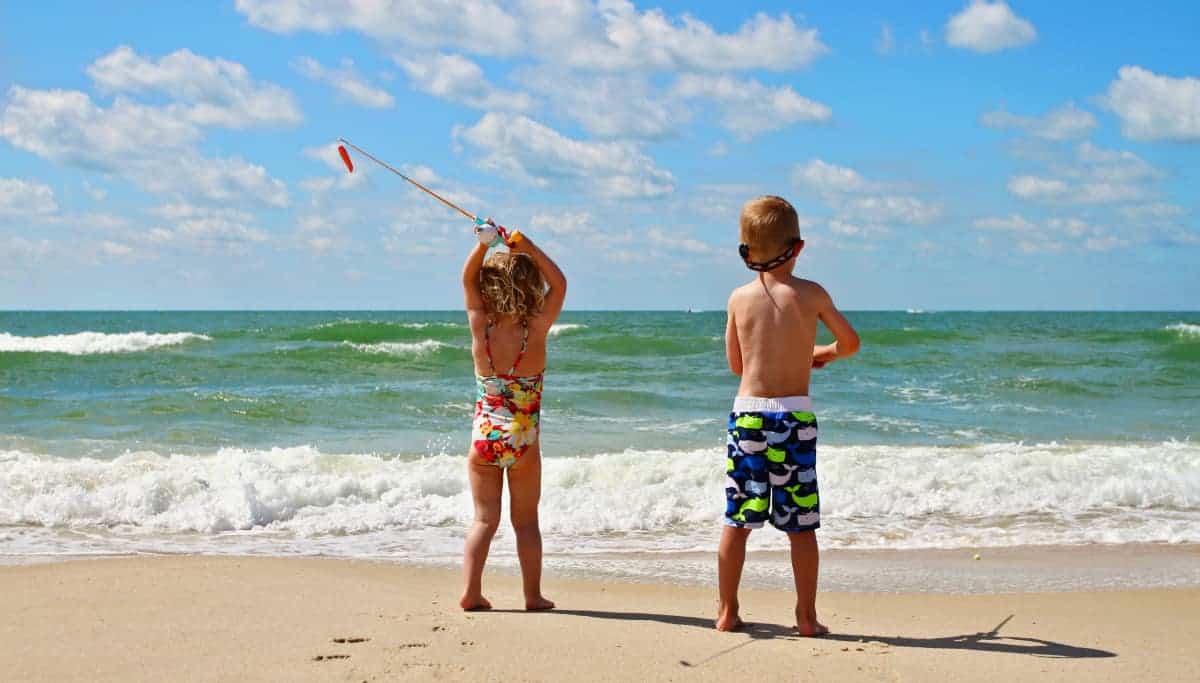
Raising Kids that Love to Fish
Fishing is one of our favorite year-round outdoor activities to do with the kids. In case you didn’t know, fishing is a very big deal in our family. Not only did I grow up on a river in a fishing household, but I married a man that lives and breathes fly fishing. Fishing has played a huge role in our relationship, from my husband giving me waders for our first Christmas together, to proposing with a fishing pole, to us fishing on our wedding day (Jackson Hole), honeymoon (Belize) and nearly every trip since then. It’s only natural that our love of fishing has seeped into the fibers of our children.
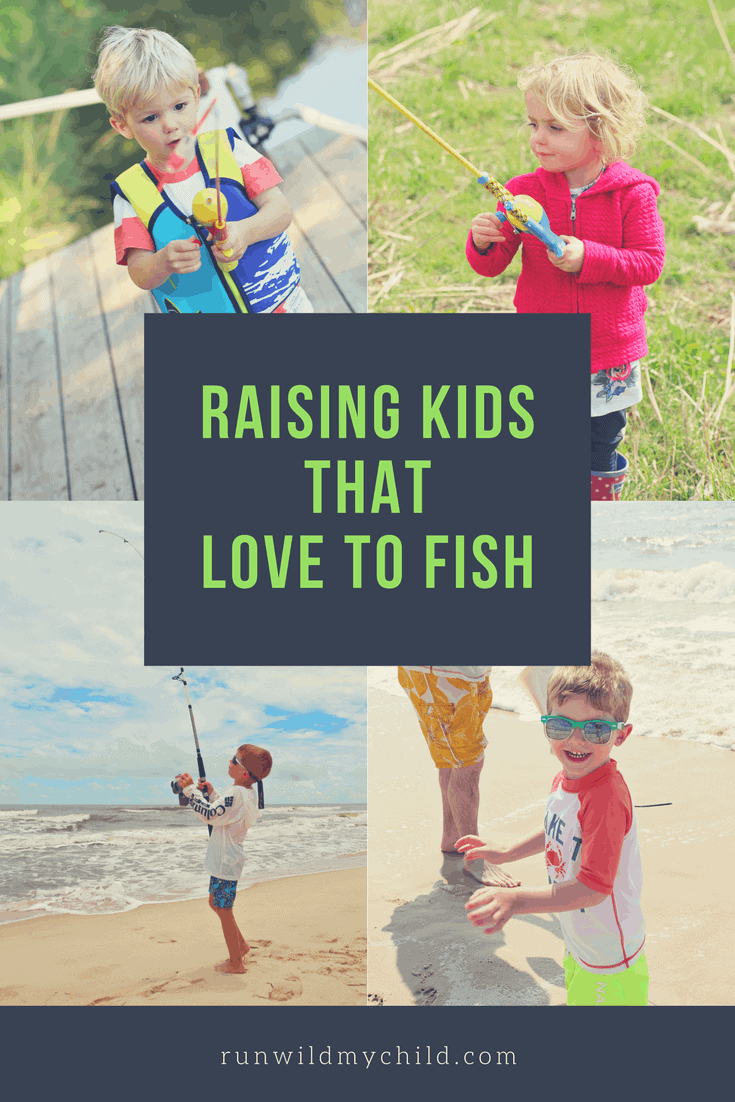
Our son started fishing at 1 and our daughter had a fly rod in her hand before she could walk. Mac took to fishing surprisingly quick! While he’s full of boundless energy, there’s something about fishing that focuses him. Fishing keeps his attention longer and more intensely than anything else we’ve found. He absolutely loves it. He’s mastered a spinning rod and is quickly perfecting his fly fishing techniques. Mim’s catching on too – she can reel and cast well for a 2 year-old, but her favorite thing to do is pet and hug the fish.
Even if you’re not a die-hard fisherman/fisherwoman (or fishermama), there are things you can do to make the experience enjoyable for kids. Over the last few years I’ve learned a lot about how to get kids to love fishing. I get asked all the time from other parents about how to encourage love fishing. I’ve put together a little list of a few things you can do that I believe will help you raise kids that love to fish!
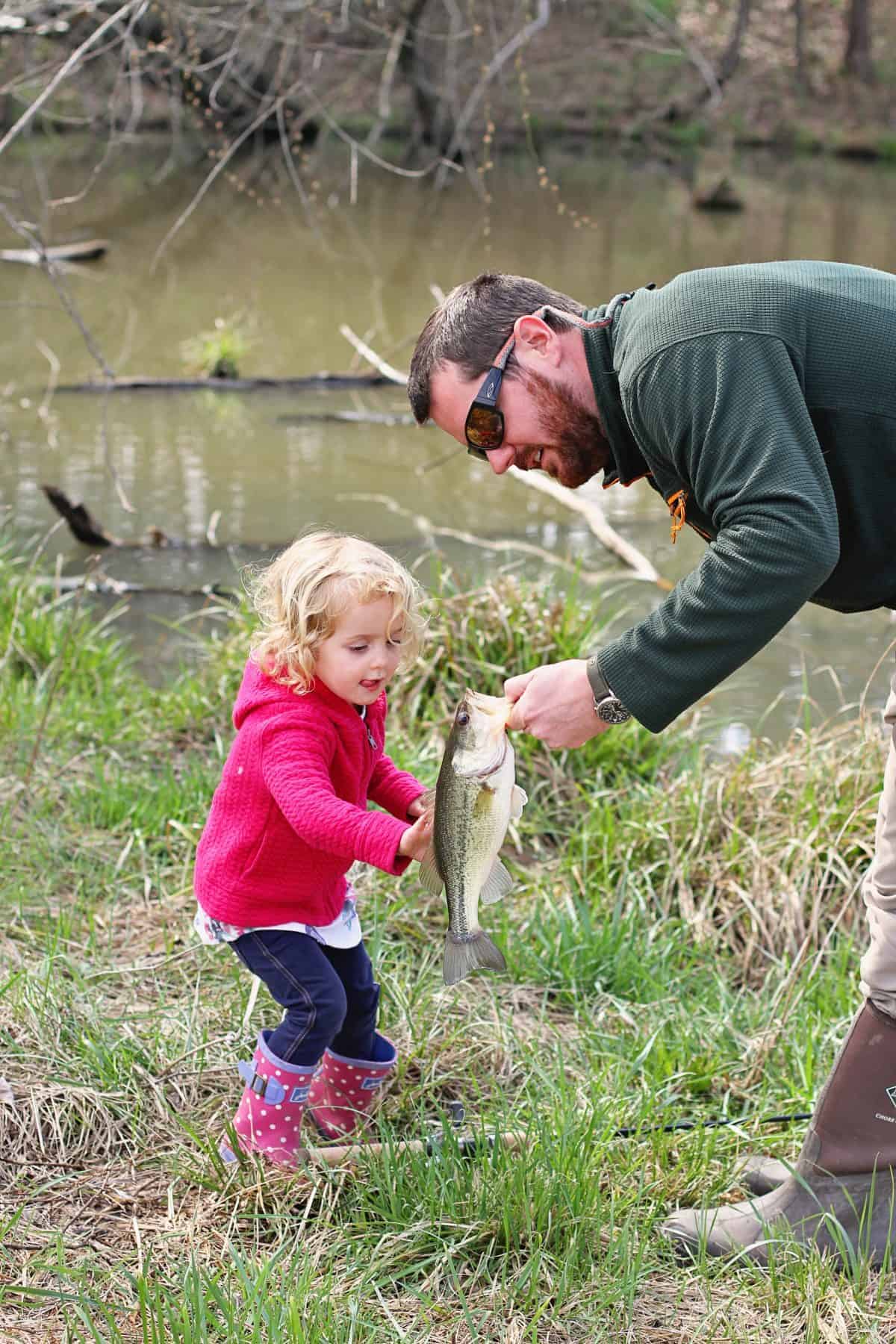
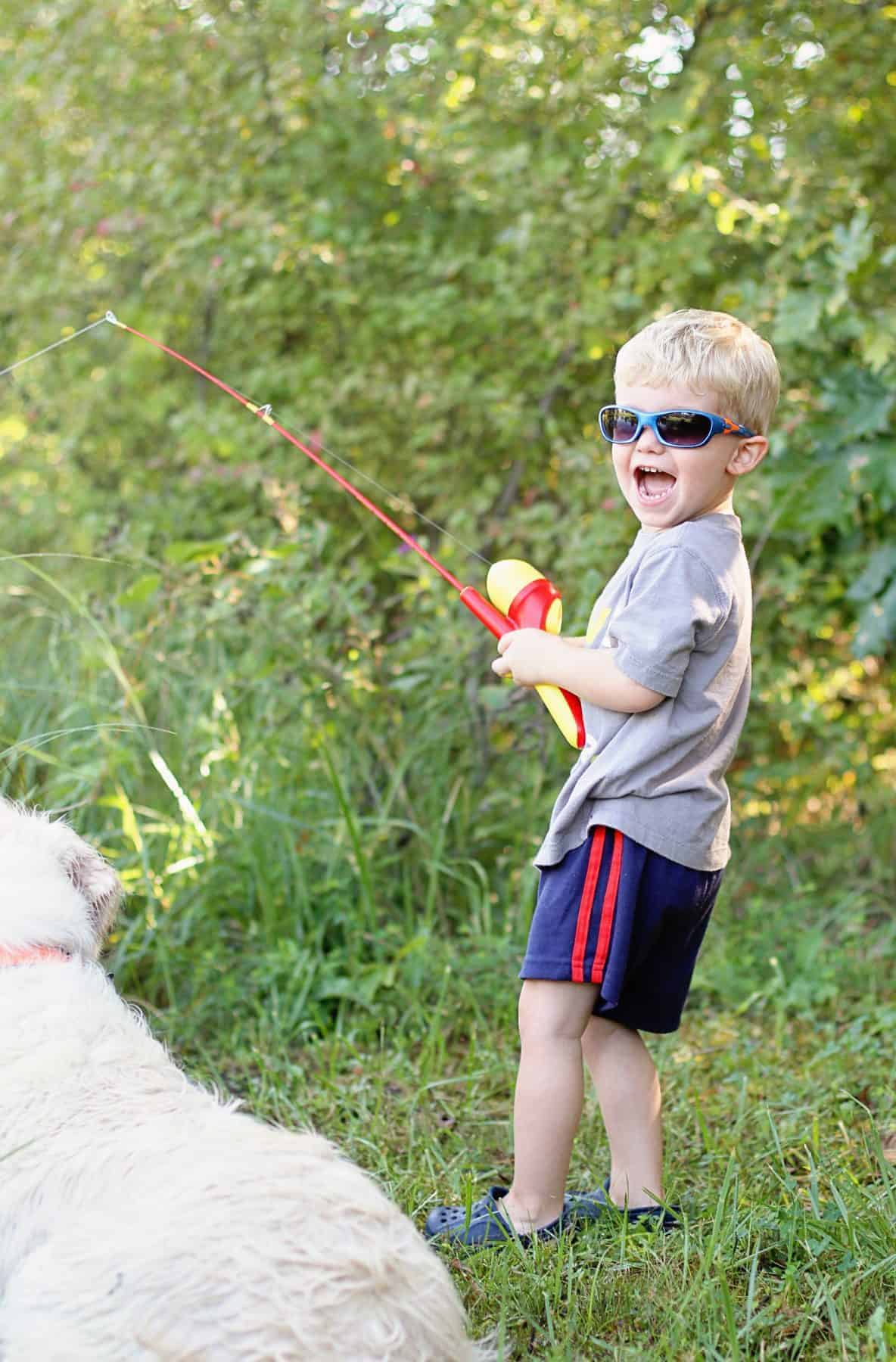
Make it fun
Perhaps an overly simple piece of advice, but making fishing fun for kids will make them want to do it again. Don’t put too much pressure on kids to catch fish right away. Let them play and explore and if they catch a fish in the meantime, that’s a bonus. Kids have naturally short attention spans, so don’t get frustrated or disappointed if they lose interest after a few minutes. Let them skip rocks, dig for worms, splash in the creek, catch minnows and get dirty. They’ll come back to their fishing poles again and again and for longer lengths of time as they get older. A fishing trip isn’t just about catching fish, it’s a time to reconnect with nature and each other.
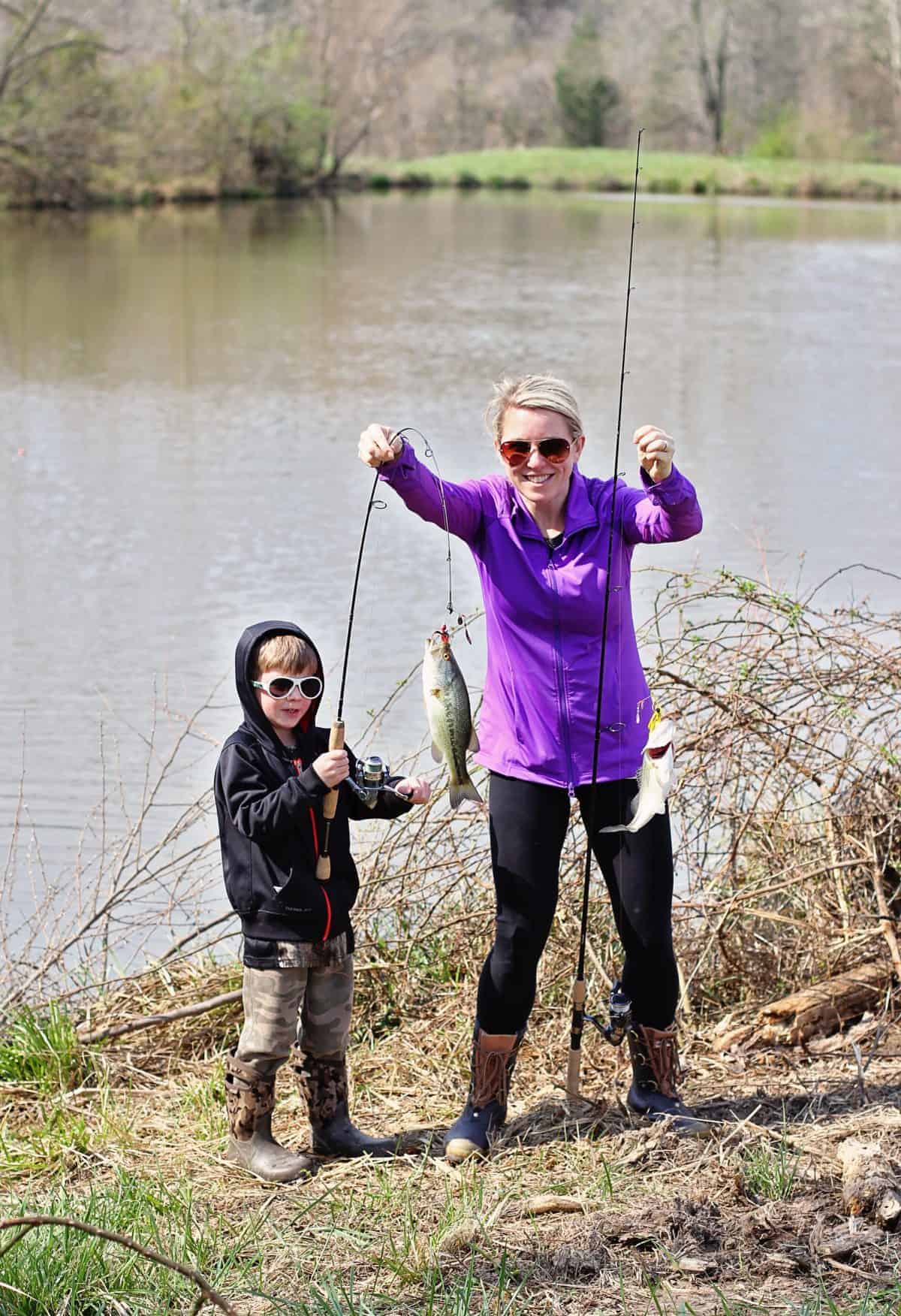
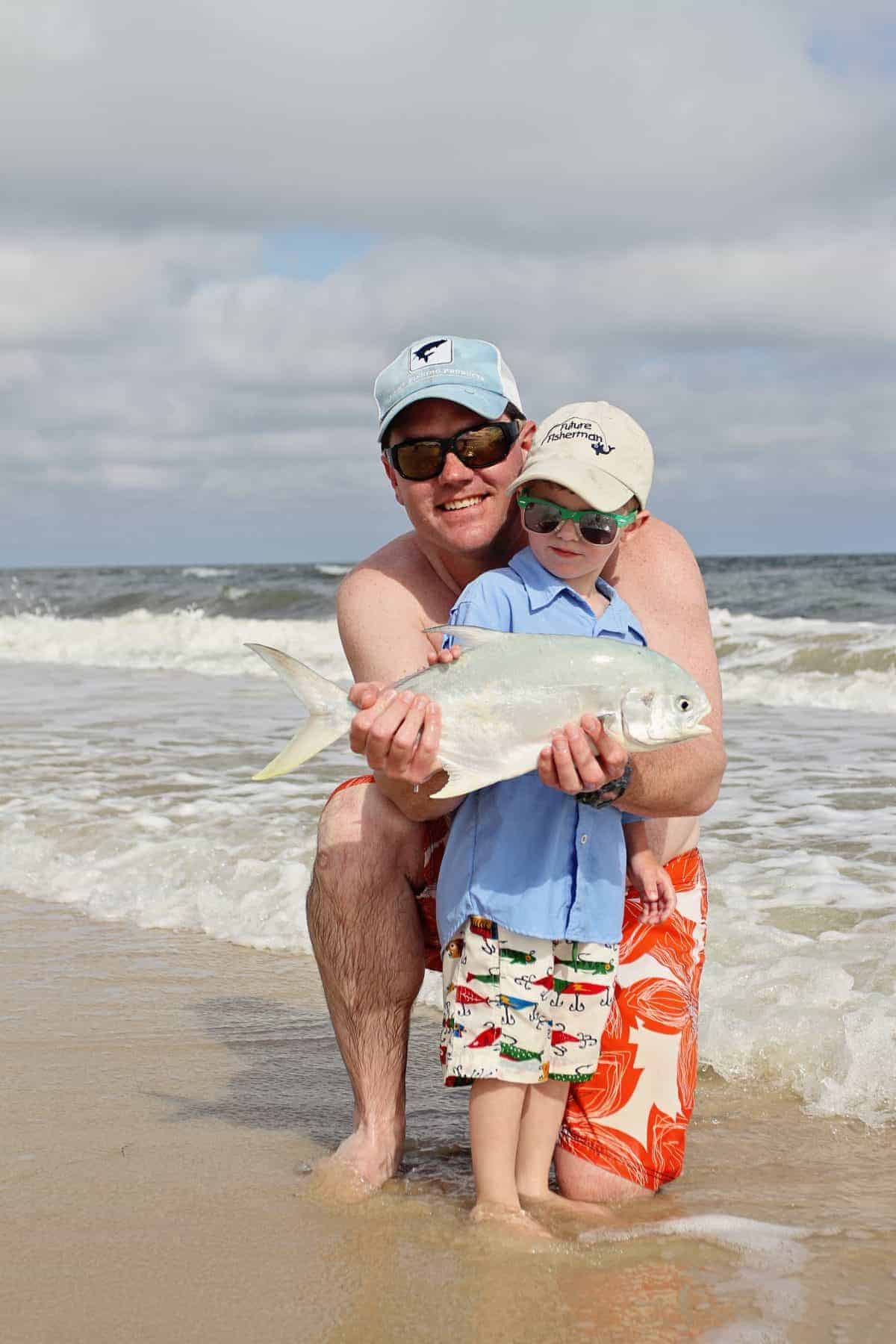
Show them how much you love fishing
Kids learn best by watching what their parents do. Sometimes this is a lesson learned the hard way after seeing/hearing my children mimic my words and actions, but with fishing and our love of the outdoors, this is something I can totally get behind them modeling. If your kids see you fishing and loving it, they’ll want to do it, too. Take them fishing often and let them see you enjoying it. Let them see how excited you get when you catch a fish, but also let them see that you don’t get one every time. Let them see how far you cast, but also let them know that your line gets hung up and snagged too.
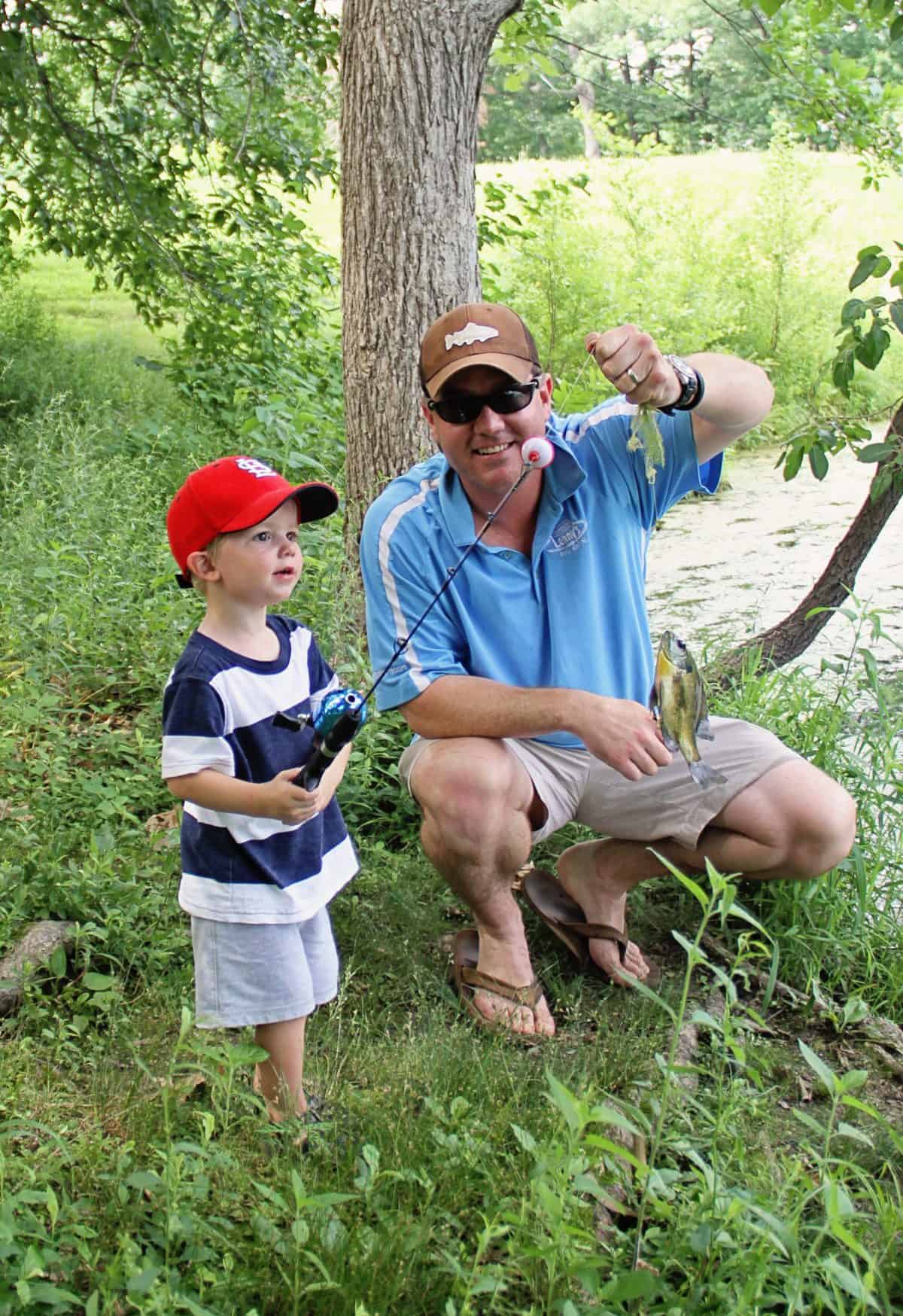
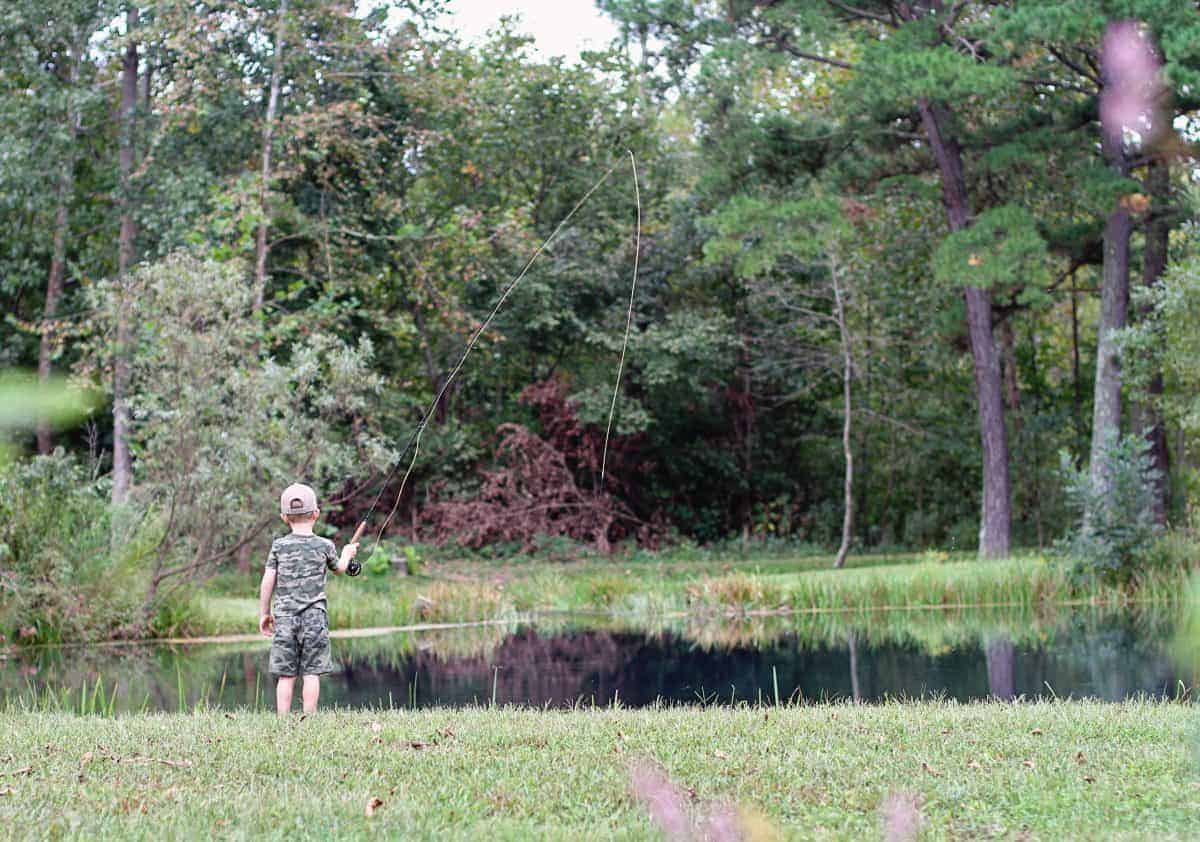
Set them up for success
When you first start out fishing with kids, they’re going to need a lot of encouragement. If you want them to love fishing, you need to set them up for success right away. While adults may love the peace and serenity of a quiet day fishing, kids want action! Any parent knows that even the most focused kid will get bored if there are no bites or catches. Try to ensure that the first few times you fish with your kids, they’ll catch a fish. Obviously, this is easier said than done, but there are a few things you can do.
First, take them to stocked ponds/rivers with lots of opportunities. The more fish available to catch, the greater your chances. Adults may wait all day for that one giant fish, but kids would rather catch 50 little bluegill. Second, use live bait, if you can. This not only entices the fish, but keeps the kids interested. Sometimes my kids are way more interested in playing with worms and minnows than actually fishing.
Put a bobber on their line, which helps them visually know when they’re getting a bite. If your kids are little, use smaller fishing poles that are easier for their small hands. And at least the first couple times you go fishing, put your own pole down and fish exclusively with them. Give them your 100% undivided attention, which they’ll remember, even if they don’t catch a thing. And when they do catch a fish, make sure you yell and clap and tell them just how amazing they are. If they see you lose your mind over them catching a fish, they’re definitely going to want to do it again!
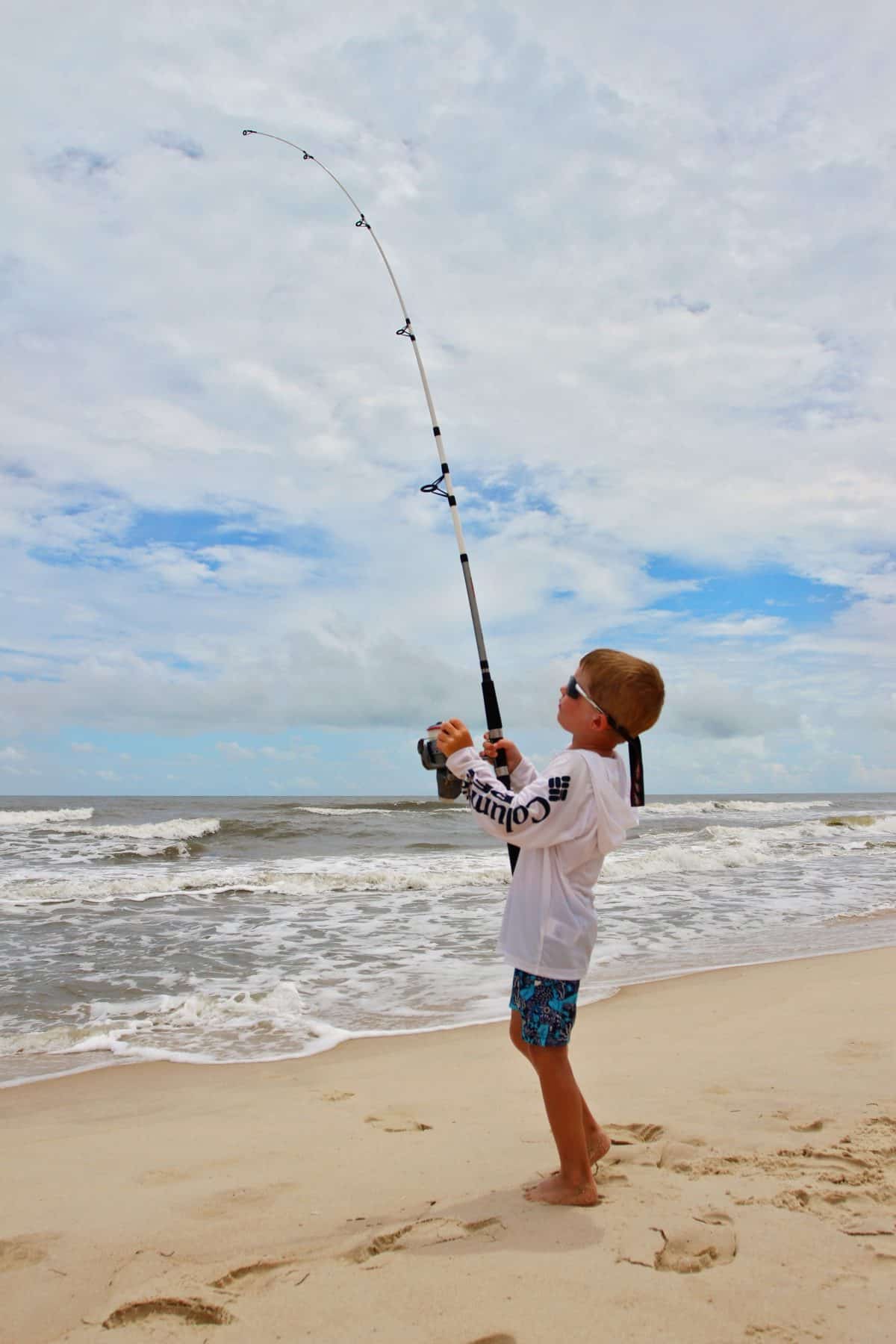
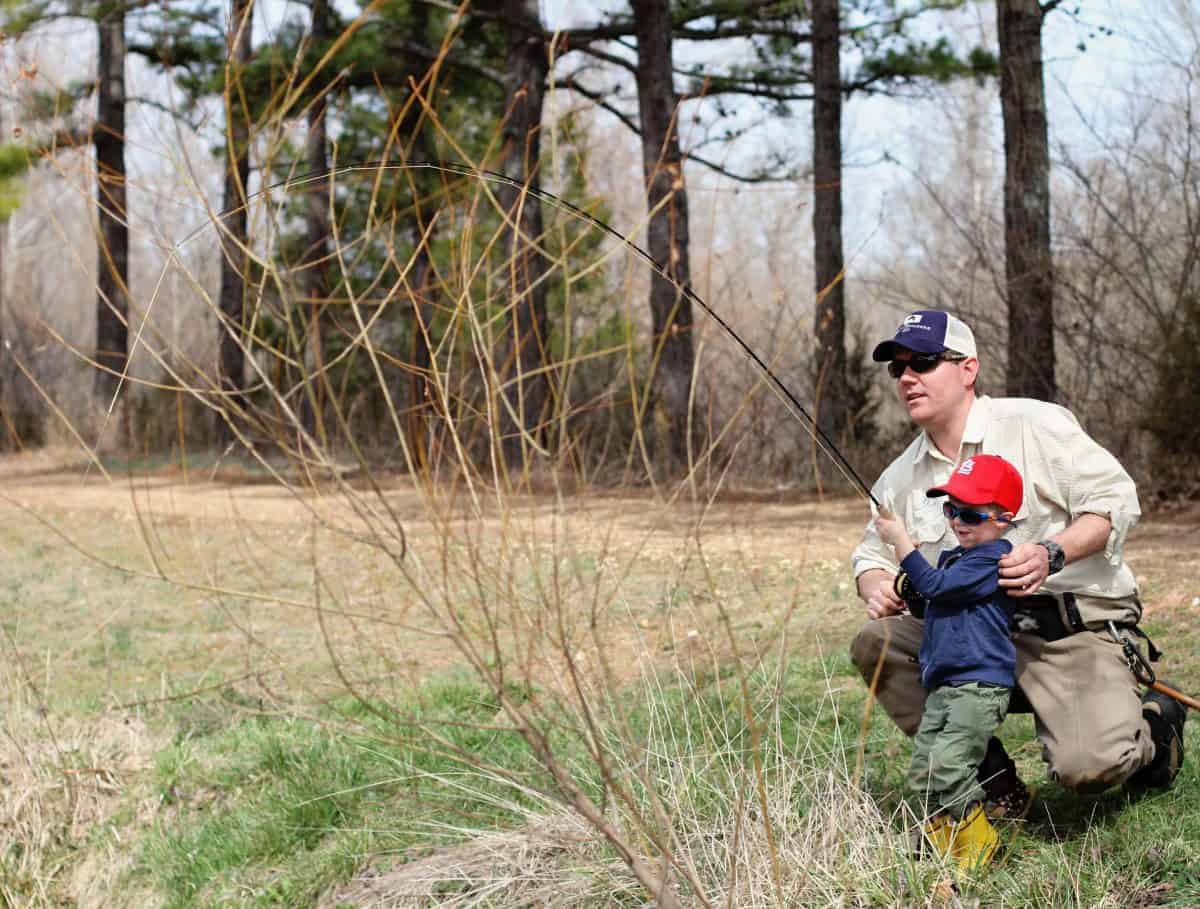
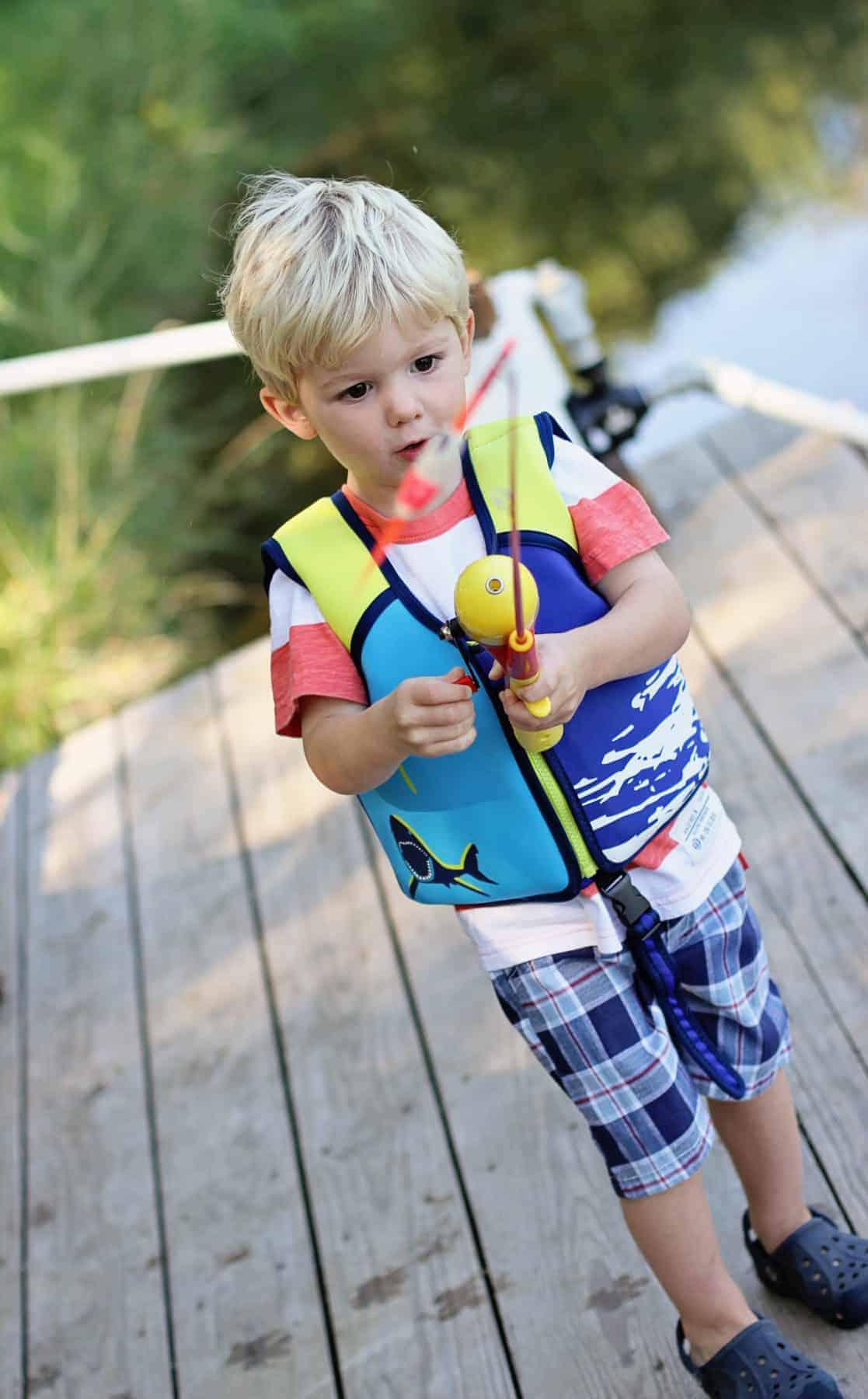
Use fishing to instill a conservation mindset
Fishing with your kids is an incredible way to teach them about nature and conservation. From the “circle of life” lesson that comes with using live bait to the “leave no trace” principle of cleaning up after people, fishing is a way that parents can instill a love of nature and a respect for the environment from a very early age. There are so many little ways to encourage your kids to appreciate the outdoors through fishing. Whether it’s by respecting the fish you catch (and keeping only what you’ll eat) to respecting the fish’s habitat. Teaching your kids to fish helps preserve our natural resources.
When fishing, take a trash bag with you and pick up any trash or debris you see around rivers, lakes or ponds. While you may not trust your little one to pick up litter, they’ll learn from your example. They’ll take notice of your action and model your behavior in the future. This will encourage them to develop an understanding about why taking care of nature is important. We all want our natural resources to be around for our children, so we need to teach them from an early age how to take care of them.

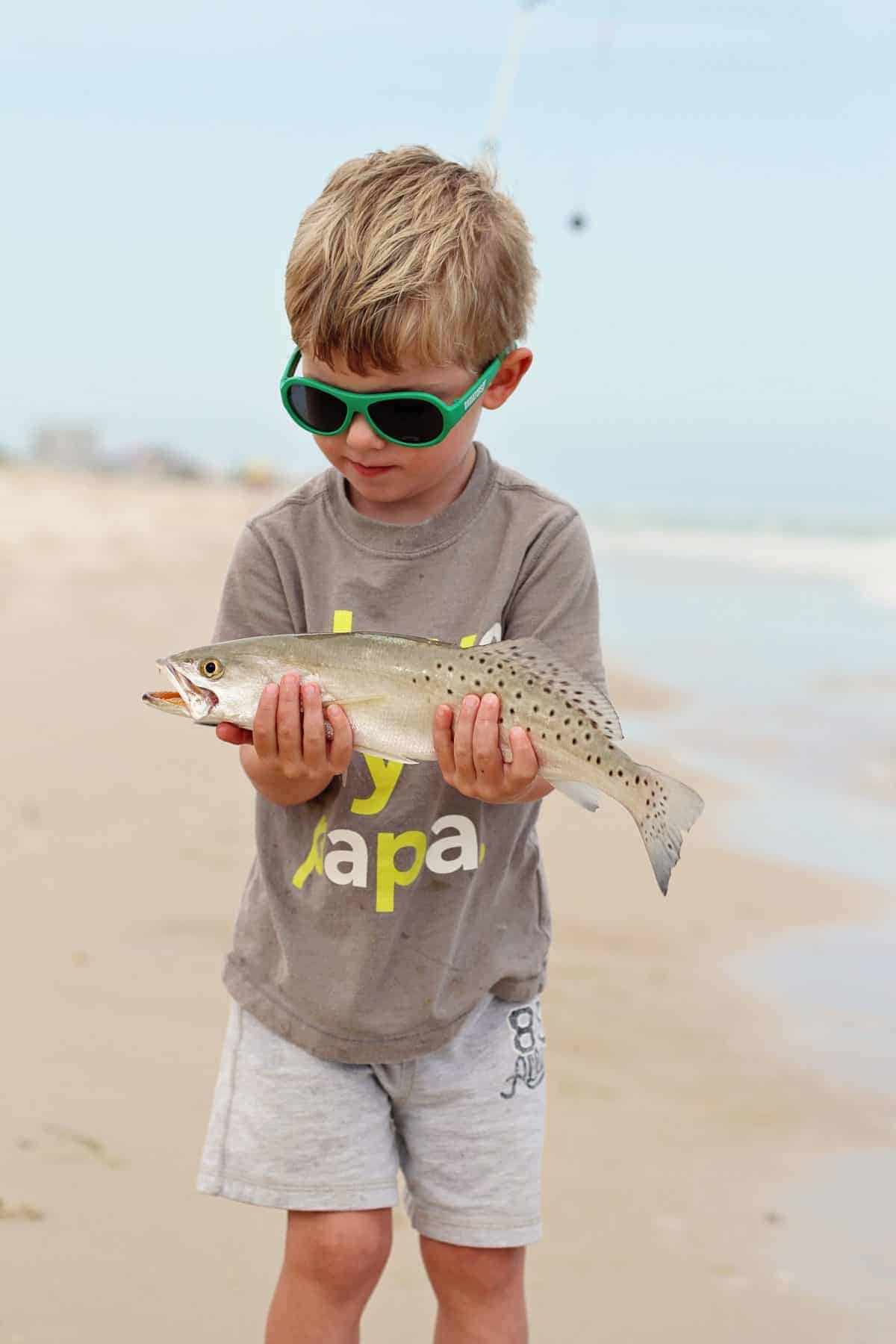
Be prepared
While my husband was never a Boy Scout, he’s always prepared for anything. He loves gear and has a giant tacklebox full of lures, line, hooks, bobbers, sinkers, nippers. He’s takes care of getting our fishing licenses. He makes sure we’re fishing where we’re suppose to fish, with what we’re suppose to fish with.
But being prepared is much more than having the right gear. He’s prepared to share fun facts about the fish we catch and knowledge about ways to identify local wildlife. He tells stories about the history of the area and jokes about fishing and nature. If the kids are bored with fishing, he can turn our adventure into a nature hike to hunt for mushrooms or arrowheads. He teaches the kids animal calls and shows them how to identify animal tracks. They listen for the different types of bug noises and bird songs. He wants our kids to know that fishing is just a small part of being outdoors and in nature.
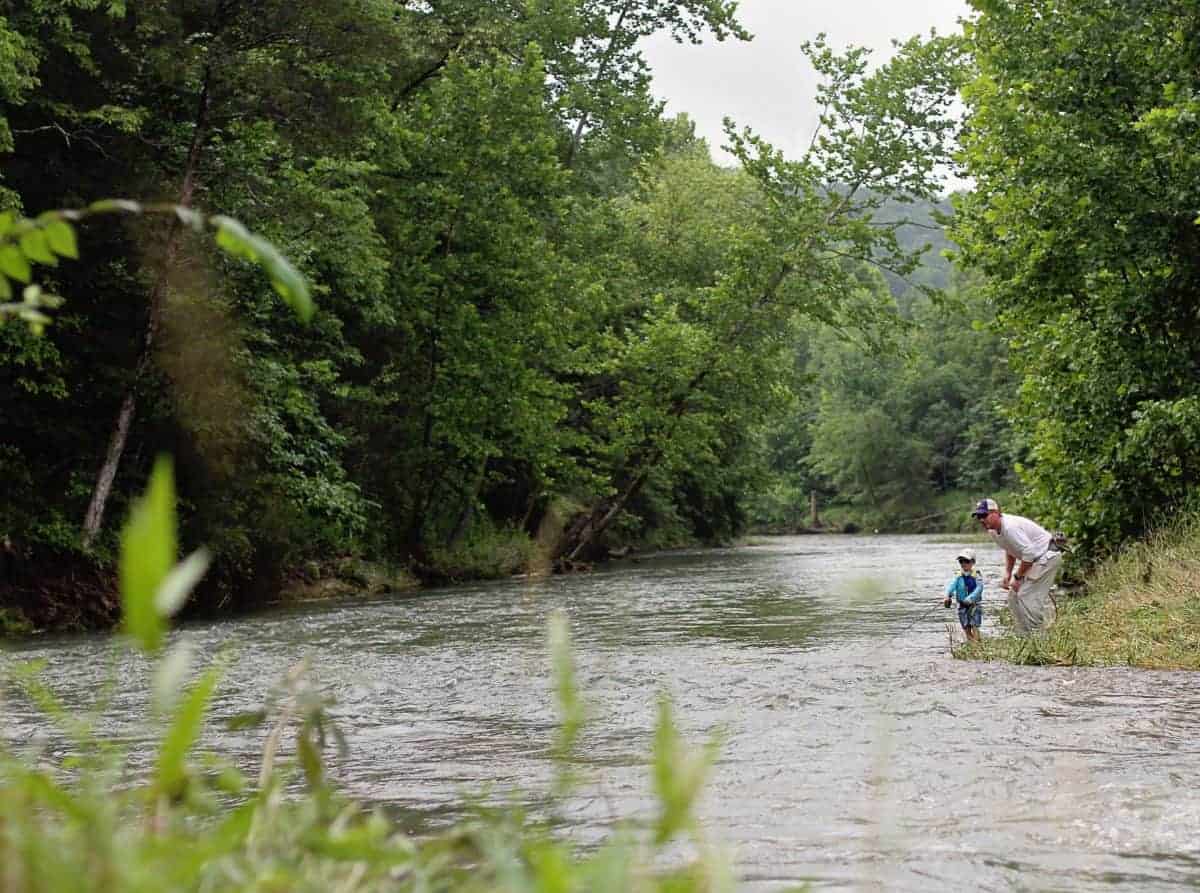


Make it theirs
Kids love being able to take ownership for their own gear and their own skills. Get each kid their own cheap plastic fishing pole. Let them practice casting the rubber plug around the house, in the yard or down the driveway. Casting takes a bit of coordination, but kids pick up on it surprisingly fast. They’ll love and take pride in having their own fishing pole take care of. Giving them their own gear releases everyone from fear of them breaking something expensive. I’m pretty sure we’ve gone through a dozen cheap fishing poles, but each one was well-loved, much-used and totally worth it.
Also, give them ownership of their own skills and improvements. Show them how to fish and cast, but stand back and let them do it on their own. Fishing’s a great way to teach kids that practice makes perfect and sometimes it takes a lot of practice to get good at something. Be there to help untangle lines, rebait their hook and offer advice, but let them take ownership in teaching themselves what works for them. They’ll be so proud of themselves and their new skill.
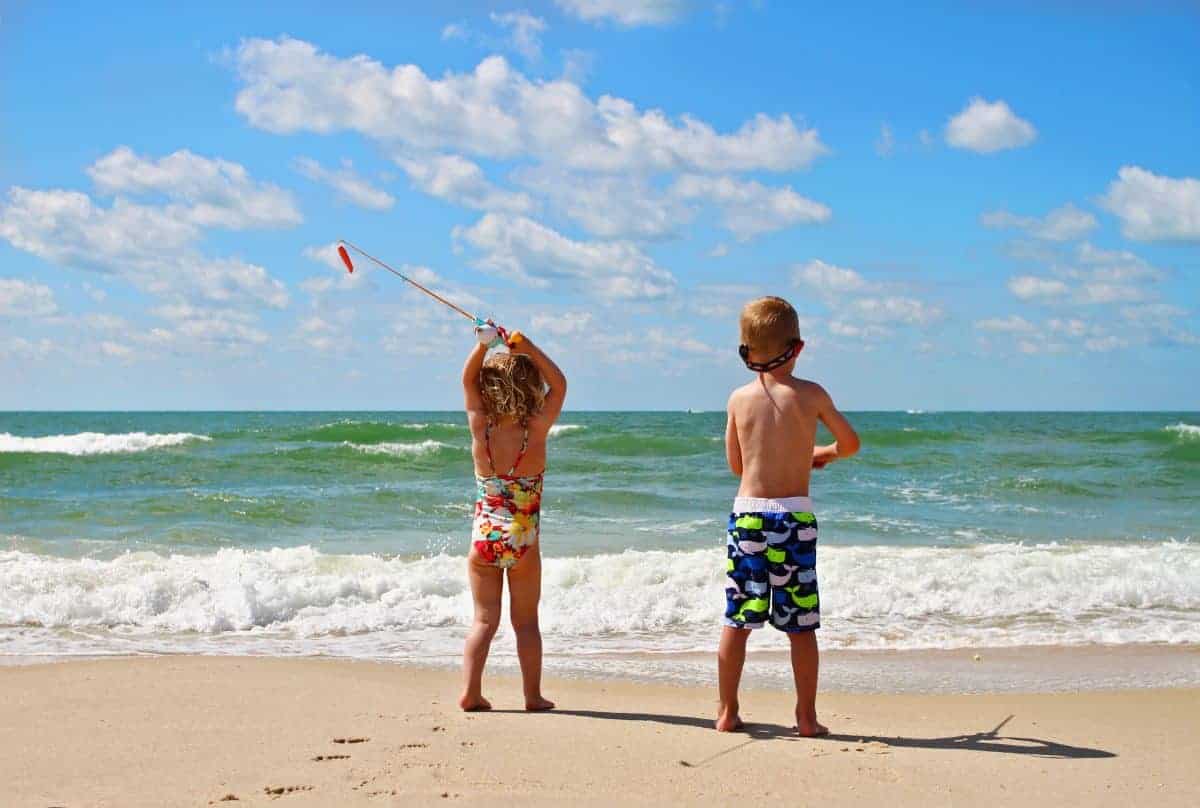
Do your kids love to fish?
What are your tips and advice to raising kids that love to fish?
Comments
5 responses to “Raising Kids that Love to Fish”
A good fishing spot is very important thing for anglers. If you want to catch big fish you should take fishing knowledge from well known blog, because a well known fishing spot can give easy to catch lots of fish.
I never thought one can make kids enjoy fishing by letting them play and explore by themselves. In my opinion, another way of letting them enjoy it is to get a fishing charter trip to catch bigger kinds of fish, such as salmon. Getting one will help them know where fish is caught while keeping the entire family entertained at the same time.
[…] Fishing is a great activity that the whole family can enjoy and do nearly anywhere there’s water! If you’ve never fished before, do a little bit of research about what the fish in your area eat and when/where to go. Ask at a fishy friend or at a local bait shop. A lot of state parks will even provide fishing gear for the day for free! Trust me, it doesn’t get much better than seeing your child’s entire face light up when she/he lands a fish! Here’s a great post on how to raise kids that love to fish. […]
I wish my kids can grow up loving fishing as well. It’s not just a hobby, it can be a self sustaining way of life for them in the future
[…] 21. Go fishing – Fishing is the perfect fall outdoor activity to do with kids! The cooler weather means that the fish are more active, especially trout (our favorite to catch). It’s one of those activities that the whole family can enjoy and do nearly anywhere there’s water! If you’ve never fished before, do a little bit of research about what the fish in your area eat and when/where to go. Ask at a fishy friend or at a local bait shop. A lot of state parks will even provide fishing gear for the day for free! If you’re just getting started, here’s some great advice on how to make fishing fun for little kids. […]

Leave a Reply